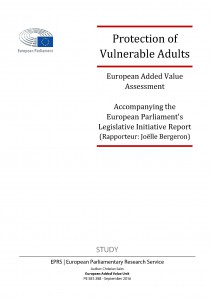Membership
On 19 January 2021, Namibia deposited its instrument of acceptance of the Statute, becoming the 87th Member of the HCCH. More information is available here.
Conventions & Instruments
On 1 January 2021, the HCCH 2000 Protection of Adults Convention entered into force for Belgium. The Convention currently has 13 Contracting Parties. More information is available here.
On 1 January 2021, the United Kingdom’s new instrument of accession to the HCCH 2005 Choice of Court Convention and new instrument of ratification to the HCCH 2007 Child Support Convention entered into force. The United Kingdom has already been bound by the Choice of Court Convention since 2015 and by the Child Support Convention since 2014, by virtue of the European Union’s approval. To ensure continuity in their application following its withdrawal from the EU, the United Kingdom deposited these new instruments of accession and ratification on 28 September 2020. More information is available here.
On 18 January 2020, Singapore deposited its instrument of accession to the HCCH 1961 Apostille Convention. With the accession of Singapore, the Apostille Convention now has 120 Contracting Parties. Singapore is the third ASEAN Member State to join the Apostille Convention. It will enter into force for Singapore on 16 September 2021. More information is available here.
Meetings & Events
From 22 to 27 January, the Applicable Law Working Group on the HCCH 2007 Maintenance Obligations Protocol met via videoconference. The Group provided guidance in relation to issues of applicable law arising from certain family relationships, the law applicable to preliminary / incidental questions, as well as the interpretation and scope of certain articles of the Protocol. More information is available here.
Publications & Documentation
On 29 January, the Permanent Bureau announced the publication of translations, in all European Union languages, of the Practical Handbook for Competent Authorities on the 2007 Child Support Convention, the 2007 Maintenance Obligations Protocol, and the 2009 EU Maintenance Regulation. The translations were made possible with the support of the Directorate-General for Justice and Consumers of the European Commission. The Handbook, originally published in English, French, and Romanian, was jointly developed by the HCCH, the Ministry of Justice of Romania, and the French National School for the Judiciary (ENM). More information is available here.
These monthly updates are published by the Permanent Bureau of the Hague Conference on Private International Law (HCCH), providing an overview of the latest developments. More information and materials are available on the HCCH website.

